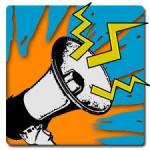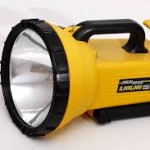GET TO KNOW YOUR NEIGHBOURS AND JOIN YOUR LOCAL NEIGHBOURHOOD WATCH.
The following crime tips are provided by the South African Police Service.
Crime tips around your home.
- Make sure that your alarm system is working properly. Contact your service provider to do a check.
- Do not leave doors open on hot days and night.
- Keep security gates locked at all times.
- Make sure your security lights are in working order.
- Ensure the gates to your property are locked at all times.
- Ensure that all doors are locked at all times and that windows are closed when you are not at home.
- Large dogs serve as a deterrent. At least one dog should be trained to sleep inside the house.
- If you leave your residence, inform your family / neighbours of your intended destination, time you expect to return and the route you will be driving, especially if you reside in a rural area.
- Ensure that tools such as axes, spades, picks, ladders, etc that can be used in an attack, are locked away when you do not use them.
- Vary your daily routine.
- Get into the habit of not immediately falling asleep after switching off the lights.
- Remain awake for awhile.
- You should not be visible in the bedroom from the outside when you are asleep.
- Always keep a torch nearby at night and when you use it, ensure that you do not give away your position.
- If you are unsure about the security status of your home after returning from work / a visit, e.g. your dogs do not come to the gate – do not enter your home.
- Contact your neighbour to assist you in securing your home.
- Identify relatively safe places of refuge, ie: bathroom, toilet or storeroom.
- The fewer windows and doors these rooms have, the better.
- Involve employees as they are part of the family / team.
- Employees must be involved in maintaining security on an equal footing.
- Report suspicious behavior and information to the South African Police Service.
- Clear the areas around the gates of bushes and other hiding places.
- Take photographs of all employees.
- It could be to your advantage to identify them, if required.
- Remunerate your employees when useful information is provided that contribute to the prevention of crime.
- Do not employ casual workers without a reference.
- Keep copies of all your employees – Identity Documents (ID’s).
- Ensure that you have a good relationship with your neighbours so that you will be in a good position to support and help each other.
- Do not allow strangers on your premises or in your house without having properly identified the person, especially at night.
- Implement proper key control measures.
- Identify keys by means of codes instead of indicating by writing on labels to which gate / door access can be gained.
- Keys to the safe must be kept on the person.
- Never hide any keys in traditional places, such as in pot plants or under doormats.
- Keys in the keyhole on the inside of the front or back door should be turned to avoid easy removal.
- Never allow strangers to handle keys or look at key numbers.
- Change locks when keys are lost.
- Insert barring devices in door locks.
- Remove keys from doors when leaving.
PERSONAL SAFETY AWARENESS
- Be crime conscious – be aware of crime opportunities at all times.
- Be aware of your surroundings and the people around you.
- Know all emergency numbers.
- TRUST YOUR INSTINCT.
- Avoid talking to strangers.
- Avoid going onto a congested street where you cannot even walk properly, which is where you will find criminals pick pocketing.
- Avoid displaying valuables where criminals can see them.
- Walk in well-lit busy streets and in a group, if possible.
- Keep your cellular phone away from the public eye.
- DO NOT LEAVE VALUABLES IN CARS.
SAFETY ADVICE FOR TEENAGERS
- You have the right to say NO!
- No one has the right to force you into sexual activity, no
matter what your relationship with this person is.
- This means no-one can force you to have sex, or to touch you in a sexual way without your consent, or force you to perform sexual activities you find unpleasant or humiliating.
- Be open with your parents, female school teacher or your friend if you came across or where made to, or asked to – have sexual intercourse with a man without your consent.
- Never Hitch-hike.
- Do not walk alone at night.
- Do not accept an offer from anybody.
- Remember it is not your fault if you are sexually assaulted.
- Do not allow anyone to touch you in a way that makes you uncomfortable.
- Be firm and clear and say NO! You have the right to do so.
- Do not leave a party or social event with someone you do not know or have just met.
- At social events, do not leave your cold drinks or drinks unattended.
- Ask friends to help you if you say NO!
WHILE SHOPPING
- Never leave your bag or purse in your trolley, however well hidden by goods.
- Never leave your bag or wallet unattended on a shop counter – not even momentarily. Remember, that is when thieves pounce.
- Beware of pickpockets and never
keep your wallet in your back pocket.
- Hold your bag tightly.
- Be constantly observant.
SAFETY AWARENESS IN A VEHICLE
- Ensure that your vehicle is in a good condition when you plant to go on a journey.
- Ensure that the fuel tank of your vehicle always has sufficient fuel.
- Always lock your vehicles doors and keep the windows closed.
- Do not leave your vehicle unlocked, even if you think you will be away for only a minute.
- Avoid stopping at remote places.
- Park your vehicle in places that are well lit.
- If a stranger wants to talk to you while in your vehicle, do not open the window wide – only 5cm is enough to have a discussion.
- If something seems suspicious, do not talk to strangers, rather be rude and drive away.
- Limit your trips at night or at least take someone along with you.
- Vary the route you travel to work and back, if this is possible.
- If approached by a stranger while in your car, drive off if possible or press your hooter to attract attention.
- If strangers loiter near or at your driveway, rather drive past. If they loiter for a long time, report it to your nearest police station.
- Car jackers may stage a minor accident so they can approach your car.
- If your car is bumped from behind and you do not feel comfortable with the individual(s) involved in the situation, drive to the nearest police station for help.
- Do not reach for your purse or valuables. Leave everything behind if forced from the car.
- Your life is more valuable than your possessions.
- Do not resist, especially if the thief has a weapon.
- Give up your vehicle with no questions asked and move away.
- A lift club limits the risk of becoming a victim of crime.
- DO NOT GIVE STRANGERS A LIFT.
- A gear lock is an affordable and a very effective anti-theft device.
- If possible, put up a mirror against the front wall
of your garage to see if someone is following you into the garage.
- Do not open your garage doors before your gates are closed.
SAFETY AWARENESS WHEN PARKING / DRIVING YOUR VEHICLE
- Avoid parking your motor vehicle where there are no security officers guarding other cars.
- Do not leave your firearm in the motor vehicles glove compartment (cubbyhole) or anywhere in the vehicle when you park the vehicle. (this is against the law)
- Make sure that all the doors and windows are properly locked when you park your car.
- Valuable items like a laptop and camera should be put in the boot of your car.
- Be aware of people coming to you and informing you that you have a flat tyre; the intention can be to steal items that they see inside the car or rob your car.
- Always close your windows when driving in the City Centre.
- Do not open your windows for hawkers along the road and at the robots.
- Do not use a cellular phone unless you have a hands-free kit.
- Have your keys ready in your hand as you approach
your car, especially if they are difficult to find in your handbag.
AT THE ATM
- Be alert and conscious of your surroundings when using the ATM.
- Never give your card or PIN (Personal Identification Number) to anyone, for any reason.
- Don’t write your PIN on the card or anything that is kept with the card.
- Do not insert your card until asked to do so by the display screen.
- Never use an ATM with a blank screen and, if the ATM is obscured from view or poorly lit, leave immediately and find another ATM.
- Stand close to the ATM and use your body and hand as shield to make sure nobody sees you keying in your pin.
- Also, make sure you keep your hand over the card slot to make sure nobody can swop or take your card.
- Never accept help from strangers when using an ATM. You should be wary of strangers asking for help.
- Criminals work in teams – one to distract you while the other steals your card or money.
- If your card is retained (swallowed) by the ATM, it is
advisable to phone your bank toll free stop card line immediately and stop your card.
- Never allow a by-stander to call the toll free stop card line on your behalf – they could be tricking you into thinking your card has been stopped.
- Guards are placed at ATM’s to discourage criminal activities and therefore cannot help you with transactions.
- If you need help, ask a bank official.
- It is advisable to set a daily ATM withdrawal limit at your branch.
ADDITIONAL SAFETY TIPS :
(Info taken from the Waaksaam / Alert SA facebook page)
Safety and Security at Home.
With South African crime statistics as they are, it has never been more important to secure your home. While we may expect the police and hired security companies to protect us, that alone is not enough.
THE FIRST EFFECTIVE BARRIER IS A STRONG, STURDY FENCE…………
WALLS AND FENCING
A high wall or fence with lockable gates is highly recommended. Such a wall or fence will provide a physical barrier to intruders and will also allow dogs or other animals to move about freely on your property.
The South African Police Service recommends a fence as opposed to a wall due to the superior visibility that it provides. However, if you can see the criminals on the other side of the fence, then they can see you as well.
In addition to a wall or fence, you may find some of the following devices useful:
Window bars
Security Doors
Security Gates
Additional locks on doors
Strengthened Doors
Peepholes
Safety chains on doors
An effective intercom system between the home and the gate, front door or garage.
Finally, ensure that your gates are locked at all times and that any keys or access devices are not left lying around uncontrolled.
In our day and age, a modern and effective alarm system is absolutely essential for maintaining and secure home. These alarm systems should be loud and remotely connected to an armed response company.
If you live in a rural area, then a siren powerful enough to be heard over long distances is recommended.
Panic buttons should be installed in a variety of different rooms to ensure that help can be called upon as quickly as possible.
There are a variety of different alarm systems that one can purchase, from expensive heat sensing “eyes” to simple tin cans attached to wires. Here are some examples:
Mechanical and / or electrical
Improvised Systems
Threaded pieces of iron
Gravel on window panes, pathways or around the home
Obstacles that make a noise when moved
Biological systems: dogs – Geese – Ostriches – Lighting.
Any installed lights should face away from the home and should ensure that the occupants may be able to use the windows without being seen from the outside.
Home owners should also be aware of any possible blind spots or shadows.
GENERAL SAFETY PRECAUTIONS AROUND THE HOME
Always ensure that your doors and windows are locked and secure.
Ensure that any tools or objects that can serve as weapons, eg, spades, axes, picks, etc are locked away when not in use.
Large dogs are useful as deterrents and should sleep in the house.
Make sure that you vary your routine. A predictable routine leads to an increased chance of attack.
If you arrive home and find something suspicious, do not enter your home. Rather call the police, your armed response company, a neighbour or your neighbourhood blockwatch to help you in checking your home.
If you need to leave your home. inform someone of your trip, your destination, your route and your intended time of arrival. This is particularly important if you live in a rural area.
Involve an employee you may have as part of the family with regards to security. Show that their security is as important to you as your own.
Reward your employee if they provide any information that proves useful in preventing a crime, especially if its a crime against you or your property.

Keep a record of your employee’s, including photographs, in case you may need to identify them.
Ensure that you do not employ anybody without a reference. This is particularly valid for casual employees.
Maintain a good relationship with your neighbours. You may require their support one day and vice .
Ensure that you are not visible to anyone outside your house when darkness falls and the lights are on. This will only serve to highlight your movements throughout your home.
YOUR SHORT ESSENTIAL EVENING CHECK LIST
Lookout for suspect people/cars near your house and report;
Look for “criminal signs” ( Eishgalo) along Street front perimeter of property : remove
Scissors, tools and things which can be used to cause injury are safely locked away;
Ladders, spades, garden forks and other possible “break-in tools” locked away out of sight;
All outside gates and doors including garage / washing room / toilet locked;
All obvious “attractions” locked away (bicycles, motorbikes, laundry, etc);
All internal and external access doors and safety and perimeter gates locked;
No keys left in locks but in safe place out of sight but accessible;
All curtains and blinds – drawn before switching on lights;
No valuables close to windows and placed out of sight (laptops, cellphones, etc);
All doors leading from rooms of which the windows do not have safety bars are locked or secured;
Cell phones with emergency numbers on hand;
Alarm system – outside beams/passive infrared detectors activated;
Alarm panic remote – on hand;
Weapons / firearms, if you use them – out of sight but within reach;
Outside lights and movement detector lights on;
Flashlights , in working order and batteries charged, close by within reach;
Car keys – close by if needed to find them quickly
Made available by Apcan Security
AVOID A HI-JACKING
3 Tips to help you avoid a hijack situation:
Approaching and entering your driveway:
2km from your house strategy. Be extra alert. Switch off the car radio andconcentrate on your surroundings. If you have noticed any vehicle behind you, use the techniques you have learned during the hijack prevention & survival course to determine whether you are being followed.
Remember to stop your vehicle just on the inside of the gate and select reverse whilst waiting for the gate to close. This creates confusion and may buy you a few seconds for the gate to close completely behind you.
Check your driveway and street before you leave or enter your premises.
Make sure your driveway is well lit and clear from shrubbery where perpetrators can hide.
Be aware of unknown pedestrians close to your residential address – do not turn into your driveway – pass and go back later.
Liaise with your neighbours – know them.
Be aware of vehicles parked close to your address with occupants inside. It might be perpetrators observing the area.
Be alert if your animals do not greet you at the gate as usual. It might be that the perpetrators over-powered them.
Phone your home and ask for someone to make sure your driveway is safe and to open and close the gate for you.
When returning home after dark, ensure that an outside light is on, or have someone meet you at the gate. Check with your armed response company if they are rendering rendezvous services.
If at any time you have to open the gate yourself, make sure nobody suspicious around and the road is clear. Stop right in front of your gate. Do not switch off the vehicle, leave the key in the ignition, get out and close the door (not creating temptation). Then open the gate. Drive in and close the gate immediately behind you.
If you have small children in the vehicle, take the key with you (this is the only exception). You need the key as a “negotiating tool”. The perpetrators want your vehicle and you want your children.
If your children are older, it is advised that they exit the vehicle with you when opening the gate so that you are all separated from the vehicle should an attack occur.
Parking your vehicle:
Check rear-view mirror to ensure you are not being followed.
When exiting your vehicle, be cautious and aware of surrounding obstructions and shrubbery that may be concealing a hijacker.
Never sit in your parked vehicle without being conscious of your surroundings. Sleeping in a stationary vehicle is particularly dangerous.
When approaching your driveway, be on the lookout for suspicious vehicles / persons. This is very important as the majority of hijackers approach their victims in home driveways.
Whilst entering your vehicle and while driving, the following should be considered:
Have your key ready, but not visible.
Inspect the outside and inside of the vehicle before unlocking. Check underneath your vehicle for items placed under the wheels. Also make sure nobody is hiding on the passenger side before you enter your vehicle. (As explained during the hijack prevention & survival course)
Know your destination and directions to it; and be alert should you get lost.
Always drive with your windows closed and doors locked.
Make a mental note of any Police Stations in the vicinity.
When stopping behind another vehicle, leave half a vehicle length in front of your vehicle to make an emergency escape if necessary.
When dropping off a passenger, make sure they are safely in their own vehicle before departing.
Avoid driving through high crime or unfamiliar areas.
Avoid driving late at night / early hours of the morning when the roads are quiet.
Drive in the center lane away from pedestrians where possible.
If possible, never drive alone.
NEVER, EVER pick up hitchhikers or strangers. (VERY IMPORTANT)
Never follow routine routes when driving; change on a regular basis.
Current Crime Trend:
The ‘follow-home’ strategy
Multiple ‘follow-home’ incidents were reported earlier this year, mostly with the same modus operandi. Criminals use spotters who wait in airports/malls/public areas, scout their targets out and ultimately follow the victim home with the intention of attacking and robbing them.
Key targets:
Key targets have been identified typically as tourists travelling from other African countries and business people or travellers wearing expensive clothes and luxury items.
Safety tips:
- Avoid wearing valuable items in public places (i.e. expensive watches, jewellery).
- Avoid talking on your cellular phone when leaving a public place as you need to be very aware of your surroundings.
- Avoid driving through high-crime or unfamiliar areas.
- Avoid driving late at night or during the early hours of the morning when the roads are quiet.
- Continuously check your rear-view mirror to guarantee you are not being followed.
- Be alert when entering your property as your vulnerability increases when your gate is open.
Source : Beagle Watch






Leave a Reply